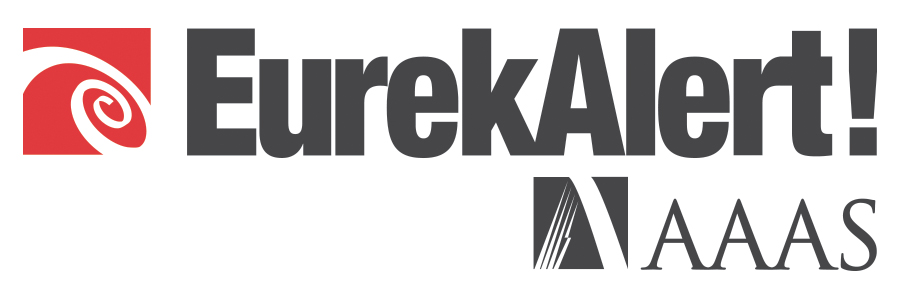
CSF MCP-1 levels (a marker of microglial activation and neuroinflammation) significantly decreased post-transplantation and correlated with ALSFRS-R slope improvement at all time points (p
“The entire investigative team working on the study are highly encouraged by the promising clinical results,” said Phase 2 trial manuscript lead author Robert Brown DPhil, Leo P. and Theresa M. LaChance Chair in Medical Research and Chair of the Department of Neurology at the University of Massachusetts Medical School (UMMS) and UMass Memorial Medical Center, “In addition, we observed a clear biological effect of the treatment on CSF biomarkers to support its proposed mechanism of action in ALS.”
“This was a high quality Phase 2 study that identified dosing, safety, and an important efficacy signal. These data are exactly what is needed to move forward with the current Phase 3 testing,” added Dr. Merit Cudkowicz the Julieanne Dorn Professor of Neurology at Harvard Medical School and the Director of the Healey Center for ALS and Chair of Neurology at Mass General Hospital. “These promising results encourage us to complete the pivotal Phase 3 trial as rapidly as possible,” said Dr. Anthony Windebank, Judith and Jean Pape Adams Foundation Professor of Neuroscience at the Mayo Clinic.
“The team at BrainStorm and the clinical investigators, led by Professors Brown, Cudkowicz and Windebank, have made a significant contribution to ALS research and to the peer reviewed-scientific literature with the publication of this study in Neurology,” said Ralph Kern, MD, MHSc, Chief Operating Officer and Chief Medical Officer of BrainStorm. He added, “We met our primary endpoint and demonstrated that a single dose of NurOwn was safe and well-tolerated while supporting NurOwn’s mechanism of action on neuroprotection and neuroinflammation pathways in ALS. We look forward to completing the current Phase 3 study to confirm the promising Phase 2 findings and expand our understanding of the potential of MSC-NTF cell therapy in ALS.”
“Having a major study peer-reviewed, accepted and published by the highly respected journal Neurology is a significant milestone for BrainStorm, and I thank the entire team for the many hours they have contributed to the research and publication process,” said Chaim Lebovits, President and CEO of BrainStorm. “Results from the study underscore the importance of conducting a larger Phase 3 clinical trial that will build upon the data collected in our Phase 2 study. Our Phase 3 study has recently reached full recruitment. All 200 ALS patients have been enrolled. We look forward to reporting our clinical results in the scientific literature and through corporate announcements.”
“We are pleased that the U.S. Phase 2 results of NurOwn are published, and that the Phase 3 trial enrollment is now complete,” said Dr. Neil Thakur, PhD, Executive Vice President for Mission Strategy at the ALS Association. The initial testing of NurOwn in ALS is promising. We stand ready to support rapid review by the FDA of BrainStorm’s biologics license application of NurOwn.”
Brian Wallach, Co-Founder of I AM ALS, said, “The publication of this important Phase 2 data is a significant milestone in the clinical development program for BrainStorm’s NurOwn. I AM ALS supports the development of potentially transformative therapies like NurOwn and shares in the hope that when the Phase 3 is completed that it will be the first disease modifying therapy for ALS.”
###
About NurOwn®
NurOwn® (autologous MSC-NTF) cells represent a promising investigational therapeutic approach to targeting disease pathways important in neurodegenerative disorders. MSC-NTF cells are produced from autologous, bone marrow-derived mesenchymal stem cells (MSCs) that have been expanded and differentiated ex vivo. MSCs are converted into MSC-NTF cells by growing them under patented conditions that induce the cells to secrete high levels of neurotrophic factors. Autologous MSC-NTF cells can effectively deliver multiple NTFs and immunomodulatory cytokines directly to the site of damage to elicit a desired biological effect and ultimately slow or stabilize disease progression. BrainStorm has fully enrolled a Phase 3 pivotal trial of autologous MSC-NTF cells for the treatment of amyotrophic lateral sclerosis (ALS). BrainStorm also received U.S. FDA acceptance to initiate a Phase 2 open-label multicenter trial in progressive MS and enrollment began in March 2019.
About BrainStorm Cell Therapeutics Inc.
BrainStorm Cell Therapeutics Inc. is a leading developer of innovative autologous adult stem cell therapeutics for debilitating neurodegenerative diseases. The Company holds the rights to clinical development and commercialization of the NurOwn® technology platform used to produce autologous MSC-NTF cells through an exclusive, worldwide licensing agreement. Autologous MSC-NTF cells have received Orphan Drug status designation from the U.S. Food and Drug Administration (U.S. FDA) and the European Medicines Agency (EMA) in ALS. BrainStorm has fully enrolled a Phase 3 pivotal trial in ALS (NCT03280056), investigating repeat-administration of autologous MSC-NTF cells at six sites in the U.S., supported by a grant from the California Institute for Regenerative Medicine (CIRM CLIN2-0989). The pivotal study is intended to support a filing for U.S. FDA approval of autologous MSC-NTF cells in ALS. For more information, visit BrainStorm’s website at //www.
Safe-Harbor Statements
Statements in this announcement other than historical data and information constitute “forward-looking statements” and involve risks and uncertainties that could cause BrainStorm Cell Therapeutics Inc.’s actual results to differ materially from those stated or implied by such forward-looking statements. Terms and phrases such as “may,” “should,” “would,” “could,” “will,” “expect,” “likely,” “believe,” “plan,” “estimate,” “predict,” “potential,” and similar terms and phrases are intended to identify these forward-looking statements. The potential risks and uncertainties include, without limitation, risks associated with BrainStorm’s limited operating history, history of losses; minimal working capital, dependence on its license to Ramot’s technology; ability to adequately protect the technology; dependence on key executives and on its scientific consultants; ability to obtain required regulatory approvals; and other factors detailed in BrainStorm’s annual report on Form 10-K and quarterly reports on Form 10-Q available at //www.

